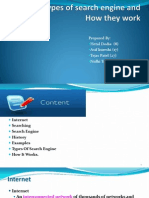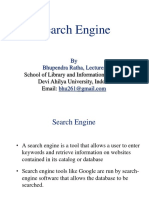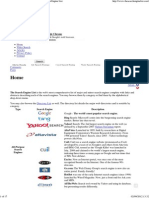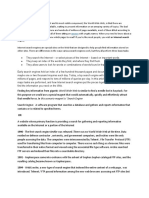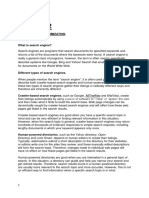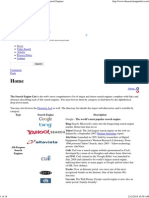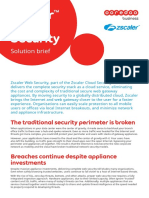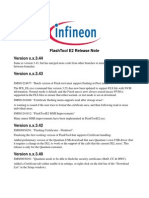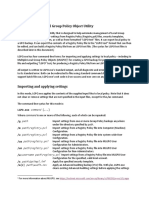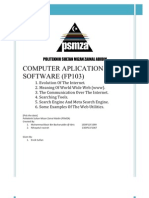0% found this document useful (0 votes)
38 views24 pagesChapter 2 Search Engines
The document provides an overview of search engines, explaining their function, types, and how they work, including crawling, indexing, and ranking. It details various popular search engines like Google, Bing, and Yahoo, along with specialized search engines and directories. Additionally, it discusses the concept of the 'Invisible Web' and other resources for research.
Uploaded by
abdallaalghool0Copyright
© © All Rights Reserved
We take content rights seriously. If you suspect this is your content, claim it here.
Available Formats
Download as PDF, TXT or read online on Scribd
0% found this document useful (0 votes)
38 views24 pagesChapter 2 Search Engines
The document provides an overview of search engines, explaining their function, types, and how they work, including crawling, indexing, and ranking. It details various popular search engines like Google, Bing, and Yahoo, along with specialized search engines and directories. Additionally, it discusses the concept of the 'Invisible Web' and other resources for research.
Uploaded by
abdallaalghool0Copyright
© © All Rights Reserved
We take content rights seriously. If you suspect this is your content, claim it here.
Available Formats
Download as PDF, TXT or read online on Scribd
/ 24





